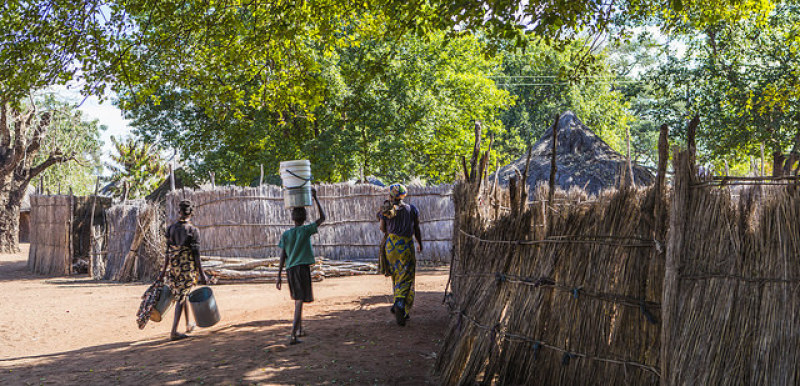
Zimbabwe today is a snapshot of the world pre-COVID pandemic. People in busy markets are going about their normal business without wearing masks and live goes on, as per usual. COVID is slowly but surely becoming just a mere memory. In fact, citizens in Harare are no longer afraid of COVID.
"COVID-19 is gone, when did you last hear of anyone who has died of COVID-19?" Nyasha Ndou told AP News. "The mask is to protect my pocket. The police demand bribes so I lose money if I don't move around with a mask."
Last week, Zimbabwe reported only 33 new cases of COVID and no deaths, consistent with data from the World Health Organization that show infections in the region had dropped since July. Now, scientists would not believe in the "mysterious" occurrence in Africa, which is facing a downward trend in COVID cases despite having low vaccination rates.
"Africa doesn't have the vaccines and the resources to fight COVID-19 that they have in Europe and the U.S., but somehow they seem to be doing better," Wafaa El-Sadr, chair of global health at Columbia University remarked. In Africa, less than 6% of all people are vaccinated. The WHO has been describing the region as "one of the least affected regions in the world."
According to WND, some scientists point to the fact that the continent has a vastly younger population than its Western counterparts. In African nations, the average age is 20, compared to Western Europe's 43. Other scientists say that the lower rates of urbanization and the time people spend outdoors may also have contributed to its resistance to COVID. Several studies are already underway to investigate whether other reasons such as genetics or past infections with parasitic diseases also play a part.
In Uganda, researchers found that COVID patients with high rates of exposure to malaria were less likely to suffer severe disease or even death compared to people with little history of the disease. Jane Achan, a senior research advisor at the Malaria Consortium and a co-author of the study admitted that their assumption of getting a higher rate of negative outcomes in those with a history of malaria infections was in fact false.
"We were actually quite surprised to see the opposite - that malaria may have a protective effect," Achan admitted. She theorized that the past malaria infection may have had "blunted" the tendency of a person's immune system to go into overdrive if they get infected with COVID. The research was presented on Friday during a meeting of the American Society of Tropical Medicine and Hygiene.
Meanwhile, Redeemer's University in Nigeria's African Center of Excellence for Genomics of Infectious Diseases director Christian Happi said that authorities in the African region were already used to dealing with outbreaks despite having no access tro vaccines, commending the extensive networks of community health workers and their hard work.
Happi said, "It's not always about how much money you have or how sophisticated your hospitals are."
Similarly in Afghanistan, where health experts believed that the political unrest could lead to a spike in new COVID cases, coronavirus infections have appeared to seem manageable. The country has recorded only about 7,200 deaths in its 39 million strong population. Scientists warn, however, that political unrest has led to little testing and difficulties in documenting the real number of new cases and deaths in the country.
EDITOR'S NOTE:
While most mainstream media reports aren't mentioning it, earlier reports indicate that Africa, which has long used Ivermectin to treat certain cases, has benefited from it in the fight against COVID-19.
Scientists have, for some time now, been unable to determine the reason why Africa has seen significantly fewer cases as compared to other nations such as the U.S. and Israel, where most of the people have been fully vaccinated. A recent study that looked into the number of COVID-19 cases among those who used ivermectin and those who didn't, however, had very interesting findings:
"The community-directed onchocerciasis treatment with ivermectin is the most reasonable explanation for the decrease in morbidity and fatality rate in Africa. In areas where ivermectin is distributed to and used by the entire population, it leads to a significant reduction in mortality."
Mainstream media might report the low number of cases in some African nations as "befuddling," but science clearly indicates that it's not really a mystery- ivermectin, though maligned by media and others, simply works. Other nations that tried it, and experts in them, also testify to its efficacy.

























